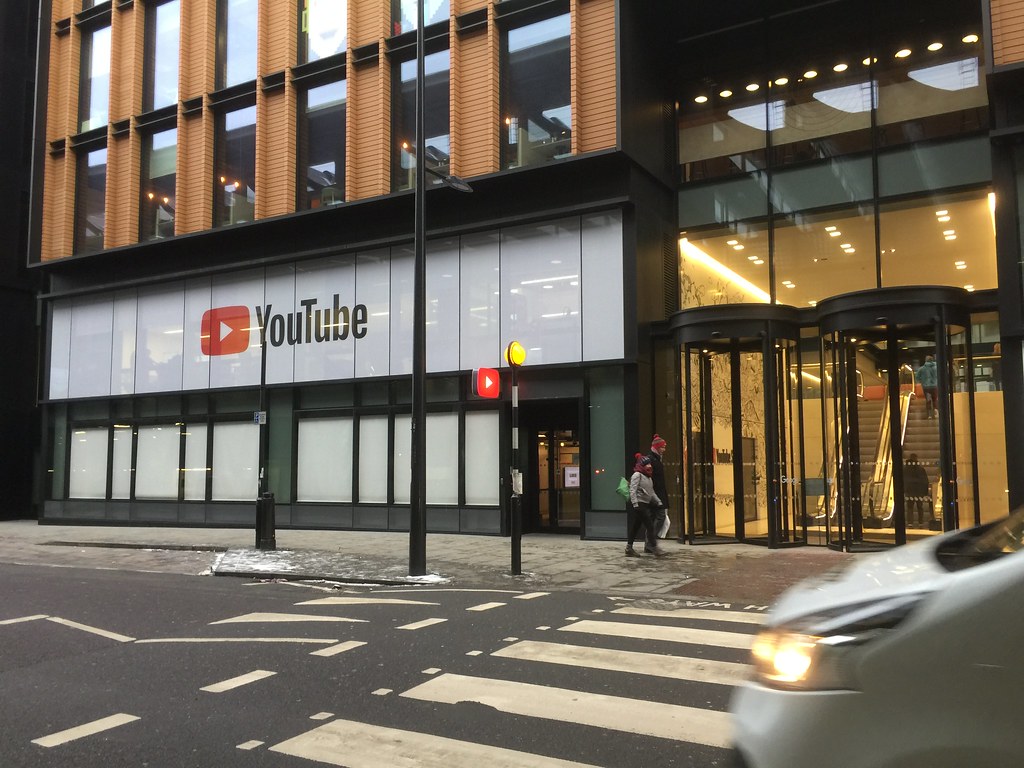In recent years, the online video industry has exploded, with millions of people turning to platforms like YouTube to consume and share video content. However, a new player has emerged in the form of Rumble, which is looking to challenge YouTube’s dominance in the online video space. In this article, we’ll explore the similarities and differences between Rumble Vs YouTube, the battle for content creators and viewers, and the future of online video sharing.
Introduction
A. Explanation of Rumble and YouTube
Rumble is a video-sharing platform that was founded in 2013. The platform has gained popularity in recent years, particularly among conservative content creators who feel that their content is being censored on mainstream platforms like YouTube. Rumble has also positioned itself as a platform that offers content creators better revenue sharing opportunities than YouTube.

YouTube is the largest video-sharing platform in the world, with over two billion monthly active users. The platform was founded in 2005 and was acquired by Google in 2006. YouTube has become a cultural phenomenon, with many creators achieving celebrity status and earning significant incomes from their content.
B. The current state of the online video industry
The online video industry has grown rapidly over the past decade, with more people than ever consuming and sharing video content. According to a report by the Pew Research Center, 72% of adult Americans now use YouTube, and the platform has become a go-to destination for news, entertainment, and education.
C. The significance of the Rumble vs YouTube battle
The emergence of Rumble as a serious challenger to YouTube’s dominance in the online video space is significant for a number of reasons. Firstly, it offers content creators an alternative platform to share their content, which could help to reduce YouTube’s stranglehold on the industry. Secondly, it could lead to increased innovation and competition in the online video space, which could benefit creators and viewers alike.
The Similarities and Differences
A. Overview of Rumble and YouTube’s features and functionalities
Rumble and YouTube are both video-sharing platforms, but they differ in a number of ways. Both platforms allow users to upload and share videos, and both offer features like commenting and liking. However, Rumble has positioned itself as a platform that is friendlier to content creators, with a revenue-sharing model that offers creators a greater percentage of ad revenue than YouTube.
B. Comparison of Rumble and YouTube’s user interfaces
Rumble and YouTube have very different user interfaces. Rumble’s interface is clean and minimalist, with a focus on video content. YouTube’s interface is more cluttered, with a greater emphasis on social features like commenting and liking. However, YouTube’s interface is also more familiar to users, which could be an advantage in terms of user adoption.
C. Analysis of Rumble and YouTube’s content moderation policies
Both Rumble and YouTube have content moderation policies in place, but they differ in their approach. Rumble has positioned itself as a platform that is more permissive than YouTube when it comes to controversial content, particularly political content. YouTube, on the other hand, has faced criticism for its perceived censorship of certain types of content, particularly conservative content.
Rumble vs YouTube: The Battle for Content Creators
A. Overview of Rumble and YouTube’s revenue sharing models
Rumble and YouTube have very different revenue sharing models. Rumble offers creators a greater percentage of ad revenue than YouTube, which could be a significant factor for content creators who rely on advertising revenue to monetize their content. However, YouTube’s larger user base means that creators can potentially reach a larger audience and earn more money overall.
B. Comparison of Rumble and YouTube’s content creation tools
Both Rumble and YouTube offer a range of content creation tools, but they differ in their approach. Rumble has positioned itself as a platform that is focused on video content, with tools like the Rumble Studio that allows creators to edit their videos and add captions and subtitles. YouTube, on the other hand, offers a wider range of content creation tools, including live streaming, podcasts, and community features like Stories and Community Posts.
C. Analysis of Rumble and YouTube’s approach to copyright enforcement
Both Rumble and YouTube have policies in place to protect copyrighted material, but they differ in their approach. Rumble has a more aggressive approach to copyright enforcement, with a policy of automatically monetizing any content that is uploaded to the platform, and paying the copyright holder a percentage of the revenue generated. YouTube, on the other hand, has faced criticism for its inconsistent approach to copyright enforcement, with some content creators claiming that their content has been unfairly flagged as copyrighted.
The Battle for Viewers
A. Overview of Rumble and YouTube’s viewer engagement strategies
Rumble and YouTube both have strategies in place to engage viewers, but they differ in their approach. Rumble has positioned itself as a platform that is focused on video content, with a user interface that is designed to showcase videos. YouTube, on the other hand, offers a wider range of engagement features, including social features like commenting and liking, as well as community features like Stories and Community Posts.
B. Comparison of Rumble and YouTube’s recommendation algorithms
Both Rumble and YouTube use recommendation algorithms to suggest videos to users, but they differ in their approach. Rumble’s recommendation algorithm is based on the user’s viewing history and the content of the video they are currently watching. YouTube’s recommendation algorithm is more sophisticated, taking into account factors like the user’s search history, the videos they have liked and disliked, and the videos that are currently trending.
C. Analysis of Rumble and YouTube’s approach to video monetization
Both Rumble and YouTube offer opportunities for video monetization, but they differ in their approach. Rumble’s revenue-sharing model offers creators a greater percentage of ad revenue than YouTube, which could be a significant factor for creators who rely on advertising revenue to monetize their content. YouTube, on the other hand, offers a wider range of monetization options, including sponsorships, merchandise sales, and Super Chat.
The Future of Online Video Sharing
A. Discussion of emerging trends in the online video industry
The online video industry is constantly evolving, with new trends and technologies emerging all the time. Some of the emerging trends in the online video space include live streaming, virtual reality, and short-form video content.
B. Analysis of how Rumble and YouTube are positioning themselves for the future
Both Rumble and YouTube are positioning themselves for the future by investing in new technologies and features. Rumble recently launched a live streaming feature, which could help the platform to compete with YouTube in this space. YouTube, on the other hand, has been investing heavily in virtual reality and 360-degree video content.
C. Speculation on what the future holds for online video sharing
It’s difficult to predict exactly what the future holds for online video sharing, but it’s likely that the industry will continue to evolve and change. Some experts predict that short-form video content will become increasingly popular, while others believe that virtual reality and 360-degree video content will become more mainstream.
The FAQ
What is the difference between Rumble and YouTube?
Does Rumble pay more than YouTube?
Is Rumble worth it?
However, Rumble’s smaller user base and less robust engagement features may limit the reach and engagement potential of a creator’s content. Ultimately, whether or not Rumble is worth it for a creator will depend on their specific goals and priorities, and they should carefully consider the platform’s features and policies before making a decision.
Does Rumble work with YouTube?
Does Rumble own my video?
Is it easier to make money on Rumble than YouTube?
Additionally, Rumble has a lower threshold for monetization compared to YouTube, which requires creators to have at least 1000 subscribers and 4000 hours of watch time before being eligible for monetization. Ultimately, the potential for earnings on either platform will depend on a number of factors specific to the creator and their content.
What are alternatives to YouTube and Rumble?
Vimeo: A video sharing platform that offers more advanced features for creators and a focus on high-quality, artistic content.
Dailymotion: A French video sharing platform with a large international user base and a focus on news and entertainment content.
Twitch: A live streaming platform primarily focused on gaming, but also includes other types of content such as music, talk shows, and creative content.
TikTok: A social media app for short-form videos, primarily focused on music and entertainment content.
Instagram: A social media app that allows users to share photos and videos, with a focus on visual content and influencer marketing.
Each platform has its own unique features, audience, and monetization options, so it’s important for creators to research and carefully consider their options when choosing a platform to share their content.
Video: Rumble Vs YouTube In 2023
Conclusion
A. Summary of key points
Rumble and YouTube are both video-sharing platforms, but they differ in a number of ways, including their revenue sharing models, content creation tools, and approach to copyright enforcement. Both platforms are positioning themselves for the future by investing in new technologies and features.
B. Implications of the Rumble vs YouTube debate for content creators and viewers
The Rumble Versus YouTube debate has implications for both content creators and viewers. For content creators, the decision of which platform to use will depend on a number of factors, including their revenue-sharing model, content creation tools, and approach to copyright enforcement. For viewers, the decision of which platform to use will depend on their preference for engagement features and recommendation algorithms.
C. Final thoughts
The Rumble vs YouTube debate is an ongoing one, with both platforms continuing to evolve and change. While both platforms offer unique benefits for creators and viewers, it’s important to carefully consider the features and policies of each platform before deciding which one to use. As the online video industry continues to grow and evolve, it’s likely that we will see more competition between platforms like Rumble and YouTube, as well as the emergence of new players in the space.
Finally, the Rumble versus YouTube debate is an important one for anyone interested in online video sharing. While both platforms offer unique benefits, they differ in a number of ways, including their revenue sharing models, content creation tools, and approach to copyright enforcement. As the online video industry continues to grow and evolve, it’s likely that we will see more competition between platforms, as well as the emergence of new players in the space. Ultimately, the decision of which platform to use will depend on a number of factors, including the needs of content creators and viewers alike.












